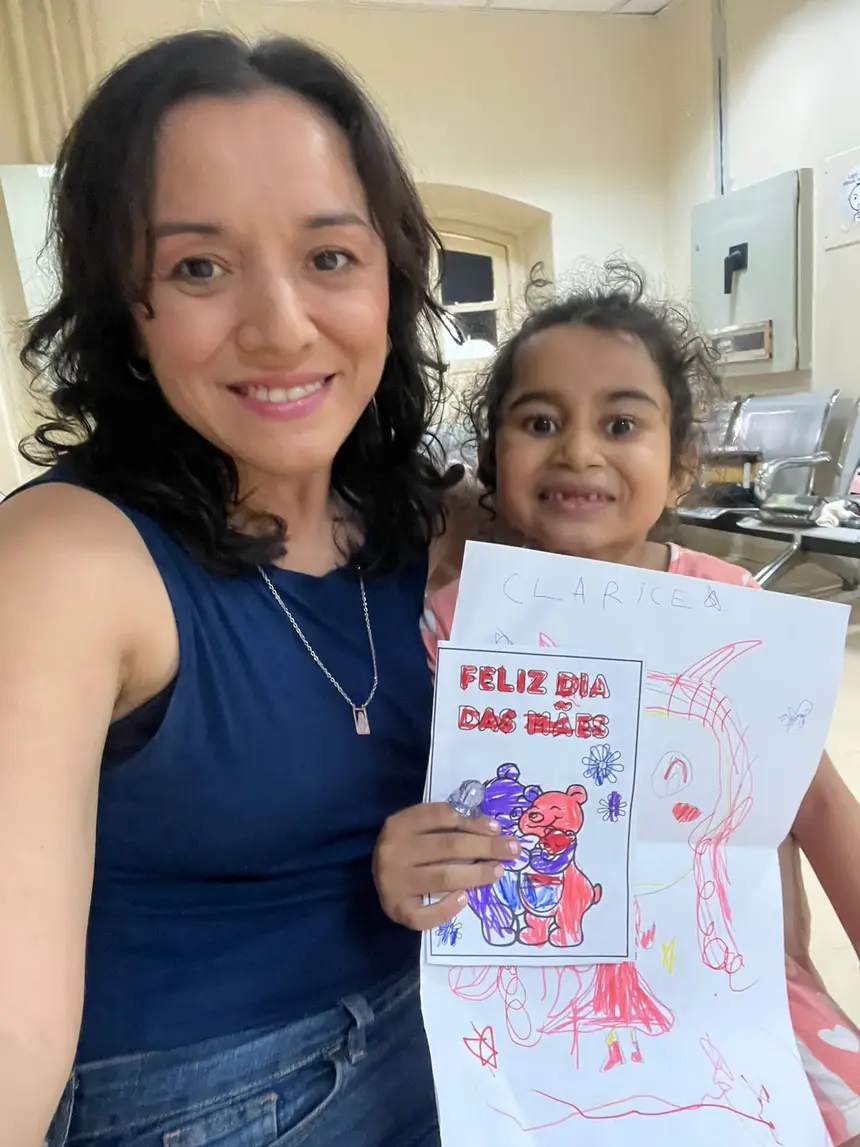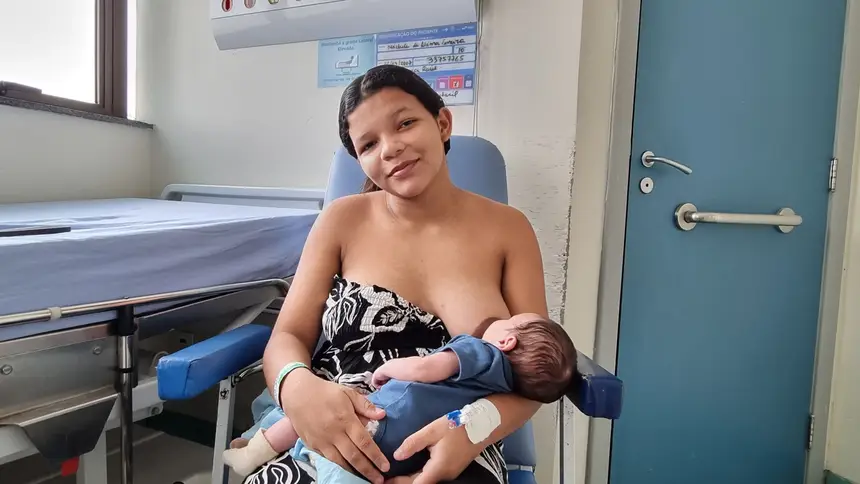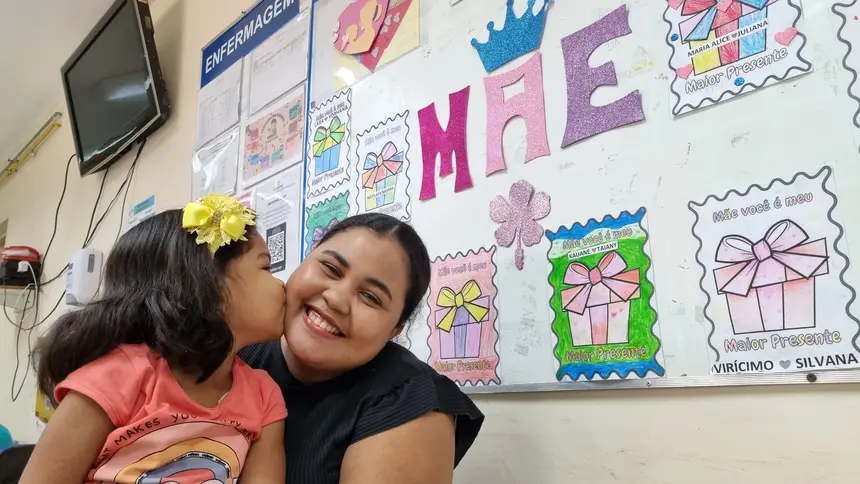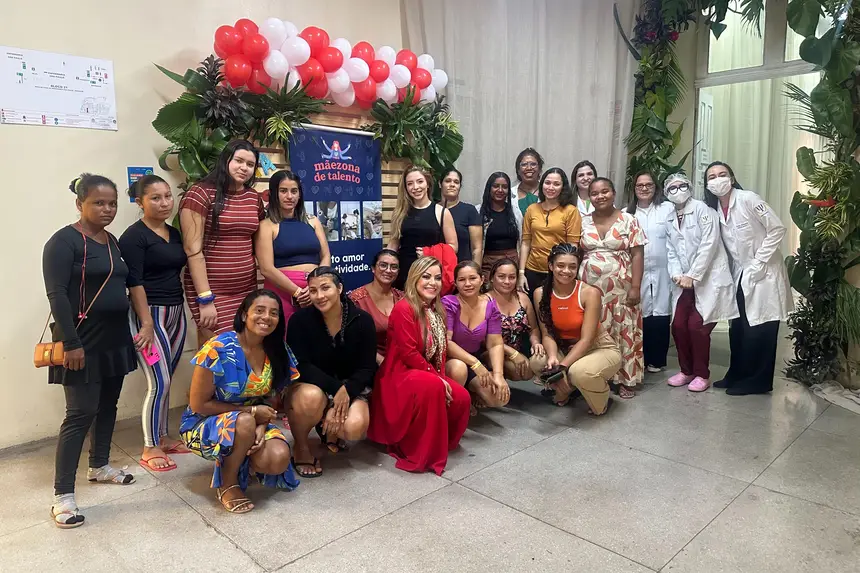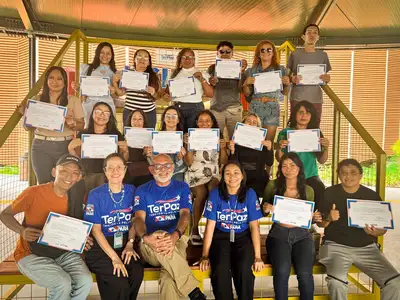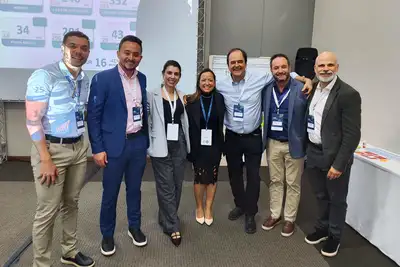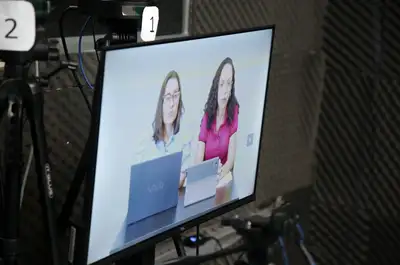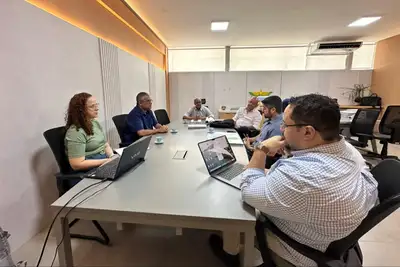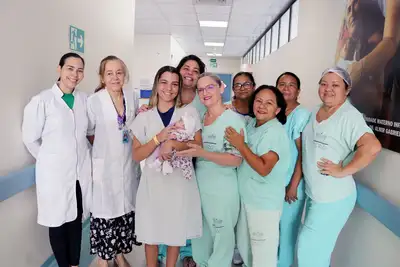Santa Casa do Pará holds special actions for Mother's Day and reinforces its role as the largest maternity hospital in Brazil
In addition to promoting over 800 births per month, the unit celebrates Mother's Month with care assistance, emotional support, and welcoming activities for patients and their companions
Santa Casa do Pará, the largest public maternity hospital in Brazil, held a special program this week in celebration of Mother's Day, reinforcing the institution's commitment to humanized care and the well-being of patients and their families. Currently, the unit has 358 maternal-infant beds and performs, on average, over 800 births per month, establishing itself as a reference for pregnant women and new mothers from Pará and other states in the Northern Region.
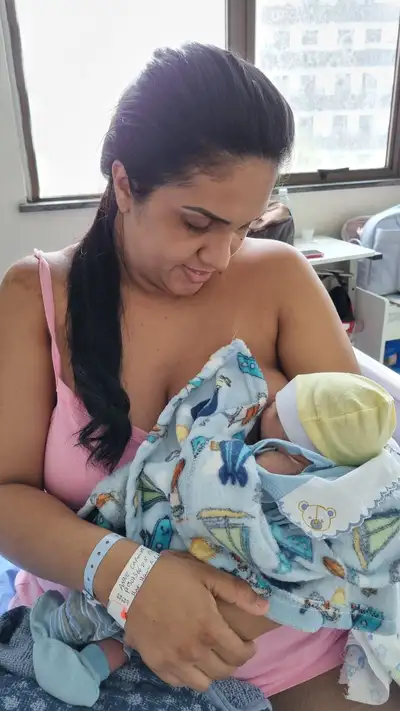
Between January and April of this year, the Obstetric Emergency area of Santa Casa conducted 12,658 attendances, with a monthly average of 3,164 women welcomed. During the same period, 3,281 births were recorded, including normal and cesarean deliveries.
Anne Caroline Souza, one of the patients treated, experienced the joy of giving birth at the institution for the second time. “Only my oldest son was not born here. My twins, who are 3 years old, were born here at Santa Casa, and now my youngest, Arthur Gael, was born on the same day as my birthday and is my Mother's Day gift. Thank God he is well, and I was very well taken care of,” reported Anne, recovering in the ward after her tubal ligation.
The current structure of the maternity includes 178 ward beds, 60 Neonatal ICU beds, 60 Conventional Intermediate Neonatal Care Unit (Ucinca) beds, 20 Ucinca-Kangaroo beds, 20 Adult ICU beds, as well as 10 observation beds in obstetric emergencies and 10 in the Maternity House.
Prenatal and outpatient care
The Women's Outpatient Clinic also plays a fundamental role in care, especially in monitoring high-risk pregnancies. In 2024, 32,608 multiprofessional consultations have already been conducted at the site. Elineth Valente, coordinator of the Outpatient Complex at Santa Casa, highlights the significance of the service:
“The outpatient care at Santa Casa has been around for over 40 years and grows quantitatively and qualitatively every year. It represents an excellent support for patients here in Pará and the Northern Region, especially in some specialties that are hard to access. It is a 100% SUS service, which helps train numerous health professionals with the humanistic vision that characterizes the institution,” she stated.
Human Milk Bank
Another highlight is the work of the Human Milk Bank, which plays a crucial role in the nutrition of premature and low-birth-weight newborns. In 2024, over 3,222 liters of pasteurized human milk have already been collected and distributed — an increase of over 500 liters compared to the same period in 2023. So far, in 2025, about 870 liters have been collected, which help feed the babies hospitalized in neonatology.
Emotional well-being and support
In addition to assistance support, Santa Casa seeks to promote the emotional well-being of patient mothers and accompanying mothers through activities carried out by the hospital teams and partner institutions. One of the actions was organized by the multidisciplinary team of the Pediatric ICUs Dr. Sidney Barbosa, São Damião, and São Cosme, which provided a moment of self-care and leisure for 25 mothers.
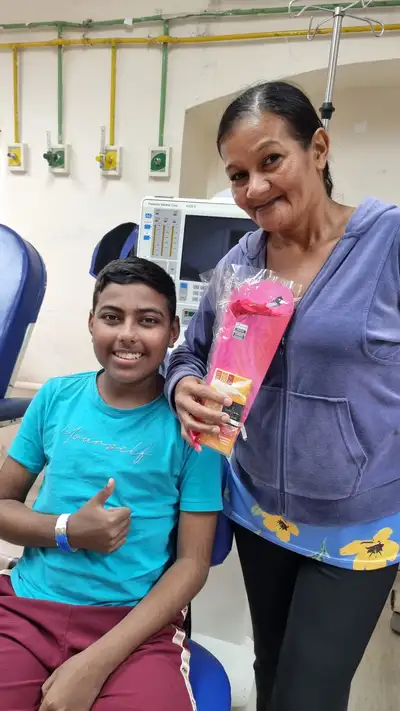
“Our goal was to reduce the levels of anxiety and stress caused to these mothers by the hospitalization process of their children, as well as to strengthen the bonds with other companions and health professionals,” explained social worker Sheyla Souza.
In the pediatric renal replacement therapy sector, mothers and children participated together in moments of affection and gratitude, creating colorful cards and receiving gifts donated by volunteers. Jaciene da Silva, mother of 13-year-old Miguel, who has been undergoing hemodialysis for eight months, was moved when talking about what this moment means to her.
“All I want is for him to be well, because when a child is not well, nothing else makes sense. He is my only child. I want him to receive the transplant and regain his health. That would be my best gift,” she said.
The actions will continue throughout the month. This weekend, tributes will be held for the mothers of children hospitalized in pediatrics. Next week, the Occupational Therapy team will continue the program with the “Talented Mothers” project, which encourages the manual and artistic skills of caregiver mothers, reviving dreams and strengthening their self-esteem.
“All these actions aim to make the waiting days of these women lighter and bring joy to their hearts. Acts of solidarity arise from internal initiatives or from partner volunteers. The Talented Mothers project was born with the proposal to find, within these caregivers, the dreams that were left behind, including the dedication to themselves, stimulating skills through new occupational experiences,” highlighted occupational therapist Clévia Dantas.


